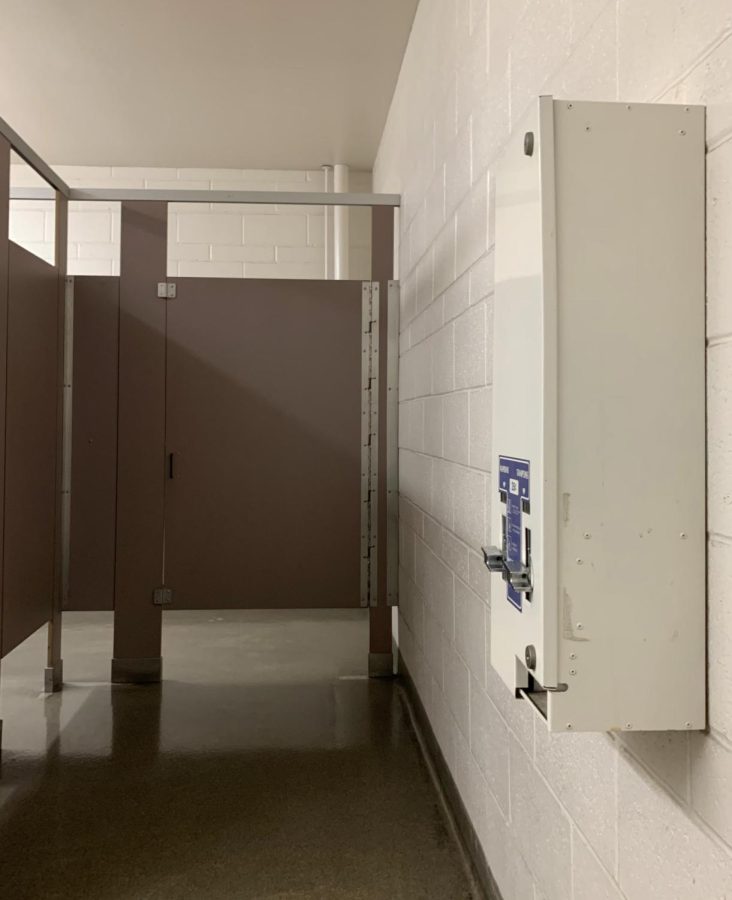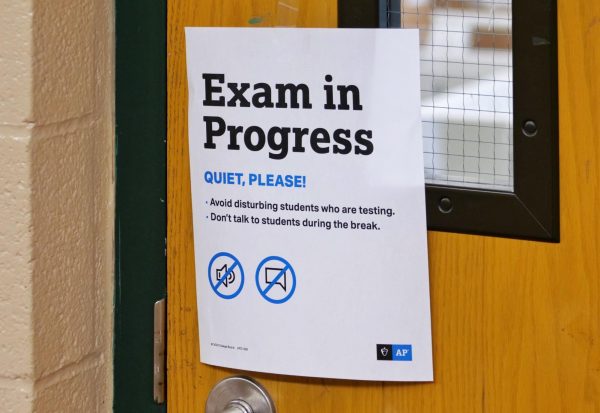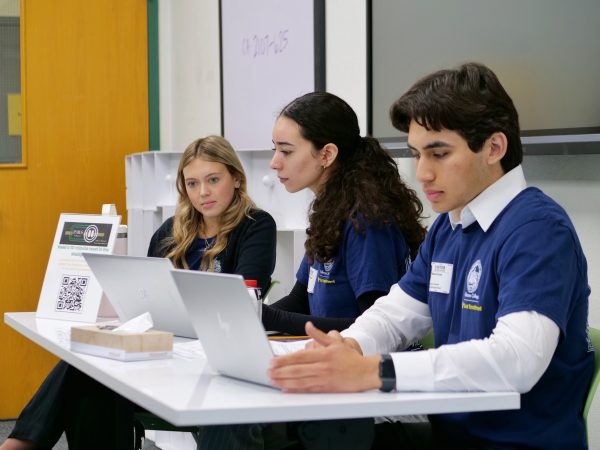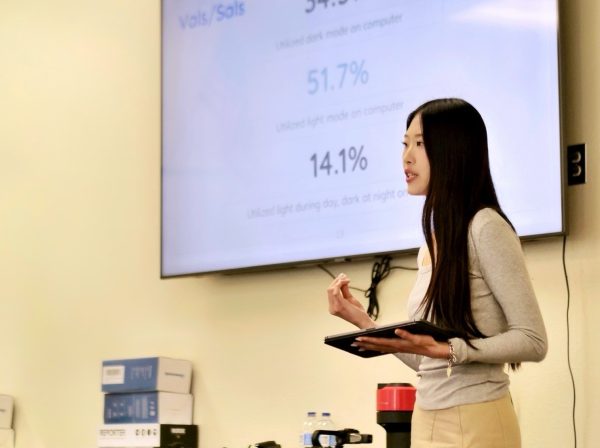AB 367 Mandates Free Menstrual Products in Schools, Effective July
Empty dispensers line the walls of girls’ bathrooms on campus. The Menstrual Equity Act will require free menstrual products in all California 6th-12th grade public schools, California state universities, and community college bathrooms (all girls’ bathrooms in the 2022-23 school year.
BOUSD students returning to campus in August will discover that those metal, and long hollow, dispensers bolted to the brick walls of the girls’ bathrooms will be stocked with pads and tampons, free-of-cost.
Assembly Bill 367, the Menstrual Equity for All Act, signed into law by Governor Gavin Newsom on Oct. 8, 2021, will require free menstrual products in bathrooms in all California public schools, community colleges, and California State University campuses starting in the 2022-2023 school year.
All Brea Olinda Unified School District (BOUSD) schools, from elementary to high school, will have free menstrual products “available and accessible, free of cost, in all women’s restrooms and all-gender restrooms, and in at least one men’s restroom, at all times.”
A previous bill passed in 2017 required 6th to 12th grade public schools with “a 40% pupil poverty threshold to stock 50% of the school’s restrooms with feminine hygiene products.” However, BOUSD did not qualify for this threshold due to less than 30% of its student population not qualifying for free or discounted lunches.
This updated act will benefit students in California who experience “period poverty” — a lack of access to menstrual products or sanitation facilities — regardless of whether their school meets a poverty threshold.
An estimated 16.9 million people experience period poverty in the United States. One in four women and girls reported struggling to afford menstrual products, and 35 states in the U.S. taxed on menstrual products with the “tampon tax.”
Gail Lyons, BOUSD Board of Education trustee, said that the percentage of poverty in schools “doesn’t really matter.”
“Just imagine for somebody who it is an issue for, how traumatic it is when you wouldn’t have access to what you need to keep yourself safe and clean,” Lyons said.
Natalie Deporto, BOUSD nurse, reported that students frequent her office daily to ask for menstrual products or to rest due to menstrual cramps. Although tampons and pads are available in the nurse’s office free-of-charge, having the same resources in bathrooms provides an easily accessible resource that alleviates the chance of embarrassment or shame that girls may feel when having to ask an adult.
“Maybe some girls don’t come and ask because they don’t want to ask a person since they’re embarrassed. So, it’ll be easier for them to just go in the bathroom now, and they don’t really have to ask a person,” Deporto said.
On many occasions, Catherine Chiu, junior, has either forgotten to bring feminine products or been asked if she has any to spare by her peers.
“It’s frustrating at times to have to ask several other girls if they have a pad or a tampon if I forget my own. I’m sure it’s the same for every other girl on campus because we don’t have menstrual products in our bathrooms,” Chiu acknowledged.
With a more discreet method to accessing menstrual products, fewer students will have to miss school. Data shows that “one in five American girls miss all or part of the school day due to their periods.”
“[The act] will enable students to attend school when they otherwise would stay home. I am glad that students now have a safe, discreet, and accessible option to respond to their menstrual cycles without fear of embarrassment for lack of resources,” Brinda Leon, BOUSD Deputy Superintendent and Chief Human Resources Officer, said.
The Menstrual Equity Act will also provide easily-accessible menstrual products to people who simply forget to bring pads or tampons to school.
“This will benefit all the girls that either don’t, or can’t, carry around the necessary products for their menstrual cycle. If they need it, it is accessible to them, and they don’t have to carry around change in their pockets, or worry whether or not the bathroom has a sanitary product dispenser for them,” Aubrey Fessler, sophomore, said.
The BOUSD Facilities, Maintenance and Operations Department is communicating with the district’s schools to begin installing menstrual product dispensers and adding stock to school bathrooms. The bill will go into effect on July 1, and the installation of the dispensers is currently planned for the district’s summer list of facility projects.
Because the Menstrual Equity Act is a state-mandated local program, the state will reimburse school districts for certain costs resulting from the Menstrual Equity Act.
For graduating seniors attending a California State University or community college, menstrual products will be required in all women’s restrooms and all-gender restrooms, and in at least one men’s restroom.
The University of California system is not mentioned in the bill, but the UC Regents and private colleges are “encouraged” to stock menstrual products in at least one location on each campus, free of cost.
Lyons said, “If you’re a sixth grade girl and you have your period, you’re already going through so much emotion about it. But the last thing you need to do is figure out how to dispose of the items so that no one else is aware that you have your period. I mean, these are just the basics, folks.”
Your donation supports the student journalists at Brea Olinda High School! The contribution will help us purchase equipment, upgrade technology, and cover our annual website hosting costs.

Doyon Kim, senior, is the Editor-in-Chief of the Wildcat, and this is her fourth and last year on staff. She loves binge-watching TV shows during her free...
Alexis Alexander, senior, is one of the Photo Managers on the Wildcat. She has a strong passion for taking photos and telling stories through her pictures....








